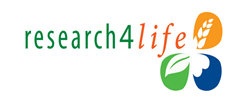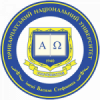Analysis of the Content of Selected Evangelical Textbooks for Teaching Religion in Poland from the Perspective of Critical Pedagogy of Religion
DOI:
https://doi.org/10.15330/jpnu.10.3.258-268Keywords:
critical religious education, pedagogy of religion, inclusion and exclusion in religious education, evangelicalismAbstract
Studies of Polish pedagogy of religion are most often situated in the area of the Roman Catholic tradition of Christianity, in its catechetical or kerygmatic current. This current aims at “education to faith” and “in faith”. The center of such a formula is the proclamation of the kerygma of salvation and the formation of the faithful who identify with their own ecclesial tradition. Adopting the formula in question, both Roman Catholic and evangelical religious education treats pedagogy as its auxiliary science providing a conceptual and methodological apparatus for the realization of goals primarily related to the local version of the theology, doctrine and teachings of a particular church. However, pedagogy of religion practiced in the kerygmatic stream is not the only stream of this sub-discipline. In addition to it, hermeneutic and critical pedagogy of religion or religious-information pedagogy, among others, are indicated. For critical pedagogy of religion, it is important to take care of the relationship between religious education and social reality. Its goals involve education for critical self-awareness and emancipatory competence, including the ability to unmask the forms of symbolic violence present in interpretations of religious texts and the social practices derived from them, as well as education for social commitment to equality and justice, opposing marginalization, exclusion, discrimination and symbolic violence in the broadest sense. The article presents content analyses of selected textbooks for teaching evangelical religion and attempts to situate the model of religious education emerging from them on the map of the indicated trends.










